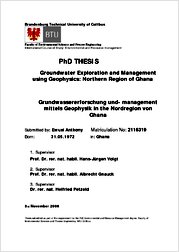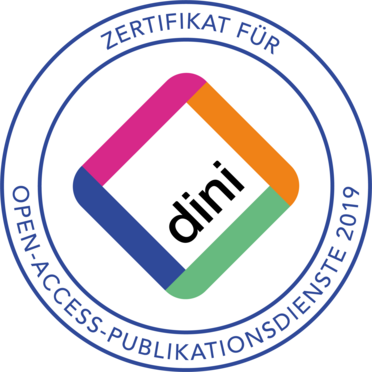Groundwater exploration and management using Geophysics: northern region of Ghana
Ewusi, Anthony
Univ. Cottbus
Monografie
Verlagsversion
Englisch
Ewusi, Anthony, 2006: Groundwater exploration and management using Geophysics: northern region of Ghana. Univ. Cottbus, 156 S., DOI: 10.23689/fidgeo-340.
 |
Dokument öffnen: |
Groundwater has been identified as the best source for rural water supply in most rural communities in the Northern region of Ghana because it eliminates the problems of water borne diseases which have affected communities in the region over the years. The guinea worm disease is presently not totally eradicated in the area and there are signals that its occurrence will be increasing in the near future if adequate measures are not implemented to curtail the problem. Adequate groundwater exploration and management appears to be the key to ensure that potable and safe water is available for the entire population of the region and that its availability on a sustainable basis is guaranteed.Groundwater facilities being provided in the area include; engineered hand dug wells, boreholes fitted with hand pumps and mechanised small towns’ piped schemes. Groundwater exploration programs implemented have however resulted in low success rates of borehole drilling because of the lack of a systematic and methodological approach. The available conventional geophysical techniques; one dimensional (1-D) electrical resistivity profiling and sounding as well as the electromagnetic (EM) methods have not been able to efficiently select suitable sites for successful borehole drilling because of their inability to successfully demarcate areas which are likely aquifer potential zones for successful groundwater abstraction. Current borehole drilling success rates especially in the Voltain rock formation are very low.

